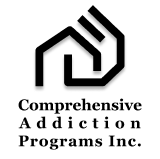Evidenced Based Practices
Substance abuse is a complex and pervasive issue that affects millions of individuals worldwide. The journey towards recovery from addiction is often fraught with challenges, making it essential to rely on proven and effective methods to guide individuals along the path to healing. Evidence-based practices (EBPs) have emerged as the pillars of progress in substance abuse treatment, providing a solid foundation for helping individuals overcome addiction and reclaim their lives. In this blog post, we will delve into the significance of evidence-based practices and how they play a pivotal role in fostering successful and lasting recovery. CAP is committed to providing evidenced-based practices throughout your treatment journey.
1. Scientifically Validated Effectiveness
The cornerstone of evidence-based practices lies in their scientific validation. These treatment methods have undergone rigorous research, clinical trials, and empirical testing to demonstrate their efficacy in helping individuals overcome substance abuse. With a robust evidence base supporting their use, treatment providers can have confidence in the methods they employ, knowing that they are employing interventions that have proven to be effective.
2. Personalized and Tailored Treatment
Every individual's journey through addiction is unique, necessitating a personalized and tailored approach to treatment. Evidence-based practices allow treatment providers to adapt interventions to meet the specific needs, preferences, and challenges of each individual. By tailoring treatment plans, professionals can address the root causes of addiction and develop strategies that resonate with the person seeking recovery, increasing the chances of success.
3. Safety and Ethical Considerations
The well-being and safety of individuals seeking treatment are paramount. Evidence-based practices provide a framework that adheres to strict safety and ethical guidelines. These practices have been thoroughly examined to ensure they do not cause harm and are delivered with the highest standards of professionalism and care. This commitment to safety builds trust between the provider and the individual, fostering a therapeutic alliance essential for progress.
4. Empowerment and Agency
Incorporating evidence-based practices empowers individuals in treatment to take an active role in their recovery journey. The transparent and scientific nature of these practices instills a sense of confidence and hope, as individuals understand that they are engaging in interventions with a proven track record of success. This empowerment fosters a sense of agency and accountability, vital components in the recovery process.
5. Ongoing Learning and Improvement
The field of substance abuse treatment is constantly evolving, with new research and insights emerging regularly. Evidence-based practices encourage treatment providers to stay informed about the latest advancements and integrate new knowledge into their approaches. This culture of ongoing learning and improvement benefits both treatment professionals and the individuals they serve, as it ensures that the care provided is continually optimized for the best possible outcomes.
6. Trust from the Medical Community and Peers
When treatment providers adhere to evidence-based practices, they gain the trust and respect of their peers in the medical and scientific community. This collaborative approach encourages open dialogue and fosters a culture of shared knowledge, enabling professionals to learn from one another and collectively elevate the standards of substance abuse treatment.
Conclusion
In the fight against substance abuse, evidence-based practices stand as the beacon of hope and progress. By relying on treatments that have been scientifically validated, personalized to the individual, and founded on ethical principles, we create a landscape of healing and recovery where success becomes attainable. The embrace of evidence-based practices signifies a commitment to the well-being of those battling addiction, providing them with the tools and support needed to overcome their challenges and reclaim their lives. As a society, we must continue to champion evidence-based practices, ensuring that those in need receive the most effective and compassionate care on their journey towards lasting recovery.
